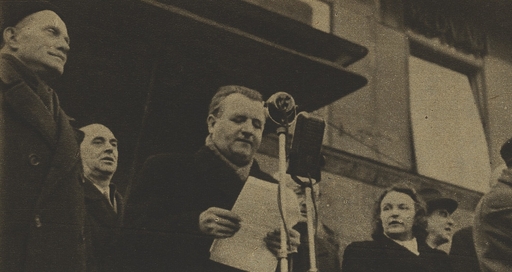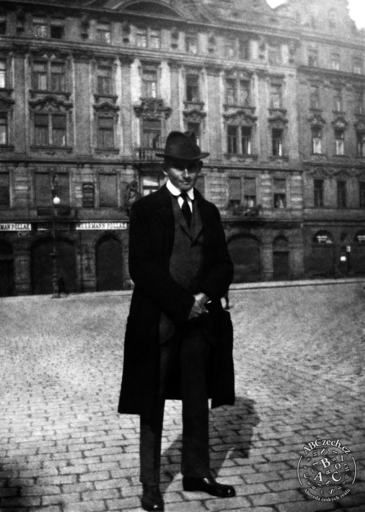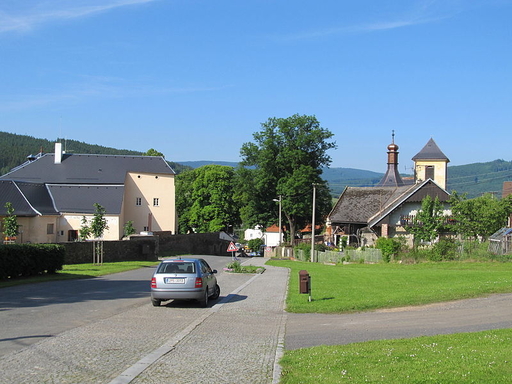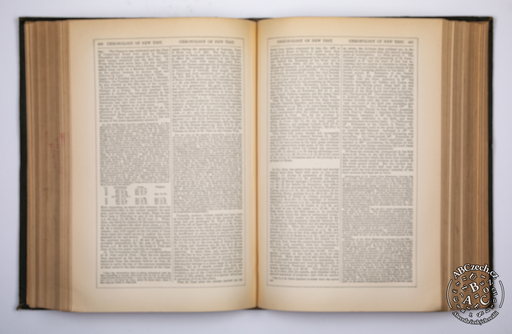
A widespread children’s game for two or more players, with a traditional dialogue. References to the game appear in everyday conversations of both children and adults.

The beginning of the legendary speech by Klement Gottwald, Chairman of the Communist Party and Prime Minister of the Czechoslovak Republic, in which he informed about the political twist that made it possible for the Communist Party of Czechoslovakia to seize absolute power in the country.

A phrase expressing nostalgia for the communist regime and its alleged advantages in comparison to the period after 1989.

One of the most famous 20th-century German-speaking writers from Prague. He is regarded as the predecessor to existentialism and literature of the absurd.

Traditional festivities in which people enjoy diverse and rich food and dances. The Czech word posvícení denotes days full of prosperity, abundance and merriment and is commonly used in the set phrase není každý den posvícení (“not every day is a Kermesse/holiday”), meaning that blissful days do not last forever.

A traditional game for two to six players of any age. It is one of the most popular among Czech family games.

Administrative term for a populated place whose size and population is between that of a town and a municipality (village).

A character nowadays known primarily as an auditory phenomenon created by the passage of wind in the chimney. In Czech folklore, there is a dramatic version of the story in which Melusine is half woman, half fish or snake.

Languages that have a special status in the Czech Republic due to their role in the traditional representation of certain nationalities. They are also supported by cultural policies. They also include Slovak, although Slovak may be freely used in official communication with the authorities. Apart from foreign languages, Czech sign language has a similar status.

A favourite phrase, used to express the intention of going to a restaurant for a beer, usually more than one.

Specific ways of negating a statement, which in Czech may be accumulated, creating double or even multiple negations. Unlike many other languages, in Czech double negations does not result in a positive but remains negative.

A favourite Czech phrase that gained popularity in the film The Buttoners (Knoflíkáři), advising against spending too much time dealing with a complicated situation. The verb řešit is also popular for its semantic indefiniteness.

A character from Czech superstitions which prevents people from sleeping peacefully. It has the form of a small object or insect and it sits on a sleeping person, suffocates him or her and causes bad dreams.

The first complete sentence written in the Czech language. It dates from the beginning of the 13th century and is written in the foundation document of the Litoměřic chapter. It is about property matters and illustrates the state of Medieval language and law.

Successful bookseller and publisher from the late 19th and early 20th centuries. A patriot and entrepreneur, acknowledged by many European monarchs. He published Otto’s Encyclopaedia (Ottův slovník naučný), the largest printed Czech encyclopaedia ever and one of the largest in the world.

Term originating in Bohumil Hrabal’s works. It denotes a person who likes to embellish reality, a day-dreamer who lives half in an imaginary and half in the real world.

A simile used in a situation when a person fails at something or something ends so badly and unfortunately that it could not be worse. It refers to a conflict between rebelling peasants and the imperial army on 26 March 1775.

A religiously motivated procession which flourished in the Czech lands in the Baroque period. The term has since begun to mean a fair with attractions, e.g. carousels and seesaws.

A braided willow stick used for whipping women and girls on Easter Monday. The term also denotes the custom of whipping with such a stick.
2016-2020 ABCzech.cz - © Filozofická fakulta Univerzity Karlovy
Content from this website may be used without permission only for personal and non-commercial purposes and with the source cited. Any other use is allowed only with the authors' consent.
This web application Sonic.cgi meets GDPR requirements. Current information can be found here.